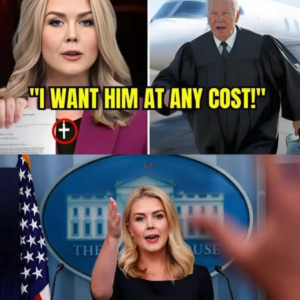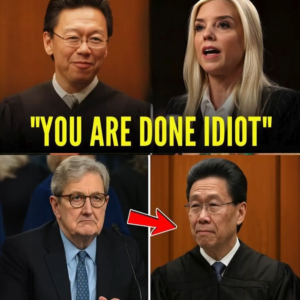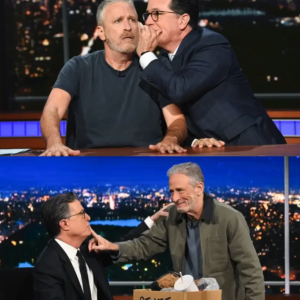LOS ANGELES, CA — When people talk about the legends of West Coast hip-hop, two names inevitably rise to the top: Suge Knight, the notorious Death Row Records boss, and Ice Cube, the lyrical mastermind who helped put gangsta rap on the map. While many fans see Ice Cube as just a “gangster rapper,” the truth is far more complex—and, as Suge Knight found out one fateful night, far more dangerous.
More Than a Rapper: Ice Cube’s Real-Life Street Cred
For years, Ice Cube’s authenticity was questioned by critics who saw him as a talented lyricist but doubted his real-life experience. But those close to Cube knew he wasn’t just playing a role. Growing up in South Central Los Angeles, he faced the harsh realities of street life. In interviews, Cube has recalled moments that could have changed his life forever—from nearly committing violent acts in revenge for family members, to being saved by the guidance of his strong father.
“I was young, I was mad, and I had a weapon,” Cube once said, describing a moment when he almost let anger take over. “If things had gone differently, I wouldn’t be here today.” It was music, and his father’s influence, that kept him from going down a darker path.

Suge Knight: The Boogeyman of Hip-Hop
Suge Knight, on the other hand, built his reputation on intimidation. Towering and ruthless, he was more than just a record executive—he was the most feared man in the music industry. Artists weren’t just scared of Suge; they were terrified. Stories of his extortion, violence, and manipulation are legendary. Jerry Heller, the infamous NWA manager, once called Suge “pure evil,” and with good reason—his tactics left a trail of fear throughout the business.
But there was one man Suge Knight couldn’t break: Ice Cube.
The Fateful Confrontation
The hip-hop world is full of rumors, but few stories are as talked about as the night Ice Cube and Suge Knight reportedly came to blows. DJ Premier, a respected figure in hip-hop, once described witnessing Cube and Suge squaring up after Cube’s split from NWA. Suge was already building his myth as the industry’s most dangerous man, but Cube refused to back down. “All I see is Cube throwing his fist,” Premier recalled. “He wasn’t punking out at all.”
For context, this was at a time when Suge Knight had the entire rap game on edge. He didn’t just make threats—he followed through. From extorting artists to surrounding himself with real gangsters, Suge’s presence alone was enough to send grown men into fits of paranoia. Yet, Ice Cube—who had already survived the streets and the cutthroat world of NWA—stood his ground.
Fear and Paranoia: Suge’s Reign of Terror
Suge’s power was so absolute that even the mention of his name sent chills down the spines of industry veterans. Jerry Heller’s home was once broken into, and “Payback’s a [expletive] Jerry” was spray-painted on his mirror—a message Heller was certain came from Suge. The paranoia ran so deep that Heller once pulled a gun on a director who jokingly mentioned Suge’s name.
But Ice Cube was built differently. He’d faced threats before, and he wasn’t about to let Suge Knight—no matter how feared—intimidate him into silence. The confrontation between Cube and Suge became legend, a moment when the “boogeyman” met his match.
Ice Cube’s History of Standing Up
Ice Cube’s refusal to back down from Suge Knight wasn’t an isolated incident. Throughout his career, Cube has faced—and fought—his share of beefs. After leaving NWA, he clashed with Above the Law, another group signed by Eazy-E. When words turned into threats, Cube didn’t hesitate to defend himself, even when it meant brawling backstage or at music seminars. “He got socked out, but he didn’t back down,” one rival later admitted.
Cube’s crew, the Lynch Mob, was a force to be reckoned with, and their presence at industry events was enough to keep would-be enemies at bay. Whether it was a hallway confrontation or a full-on seminar melee, Cube made it clear: he wasn’t to be messed with.
Surviving Hip-Hop’s Most Dangerous Era
The 1990s were a dangerous time in hip-hop. The deaths of Tupac Shakur and The Notorious B.I.G. cast a shadow over the industry, and violence was never far from the surface. In the midst of this chaos, Ice Cube managed to navigate not only personal beefs but also high-profile feuds with groups like Cypress Hill and Common. Each time, Cube held his own, proving that his toughness wasn’t just for show.
His legendary diss track “No Vaseline” against NWA remains one of the most scathing in rap history. Even when facing off with lyrical heavyweights like Common, Cube was ready to respond—though a peace summit led by Louis Farrakhan ultimately squashed that particular feud.
The Message: Don’t Underestimate Ice Cube
The night Suge Knight tried to test Ice Cube was more than just a scuffle—it was a defining moment. For Suge, it was a reminder that not everyone could be bullied, not even by the most feared man in hip-hop. For Cube, it was another chapter in a life defined by resilience, courage, and authenticity.
Ice Cube’s journey from the streets of South Central to the top of the music and film industries is a testament to his character. He’s not just a rapper, not just an actor, but a survivor—someone who lived the life he rapped about and came out the other side stronger.
Legacy
Today, Ice Cube is seen as a multi-talented icon, but the stories from his past are a reminder of just how real—and dangerous—he once was. Suge Knight may have ruled with fear, but Ice Cube ruled with respect. And in the end, that’s what truly lasts.
The night Suge Knight found out how dangerous Ice Cube was isn’t just a hip-hop legend—it’s a lesson: never judge a man by his lyrics alone. Sometimes, the realest ones are the ones who never back down, no matter who stands in their way.





